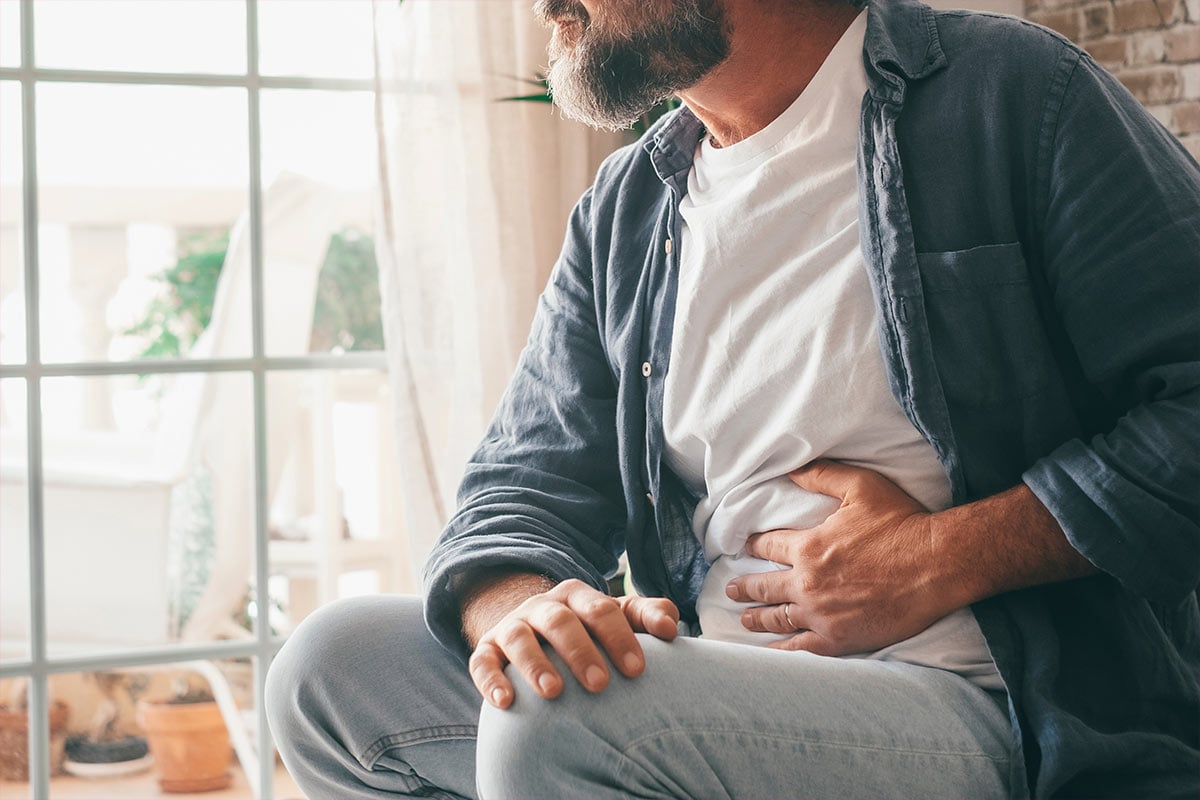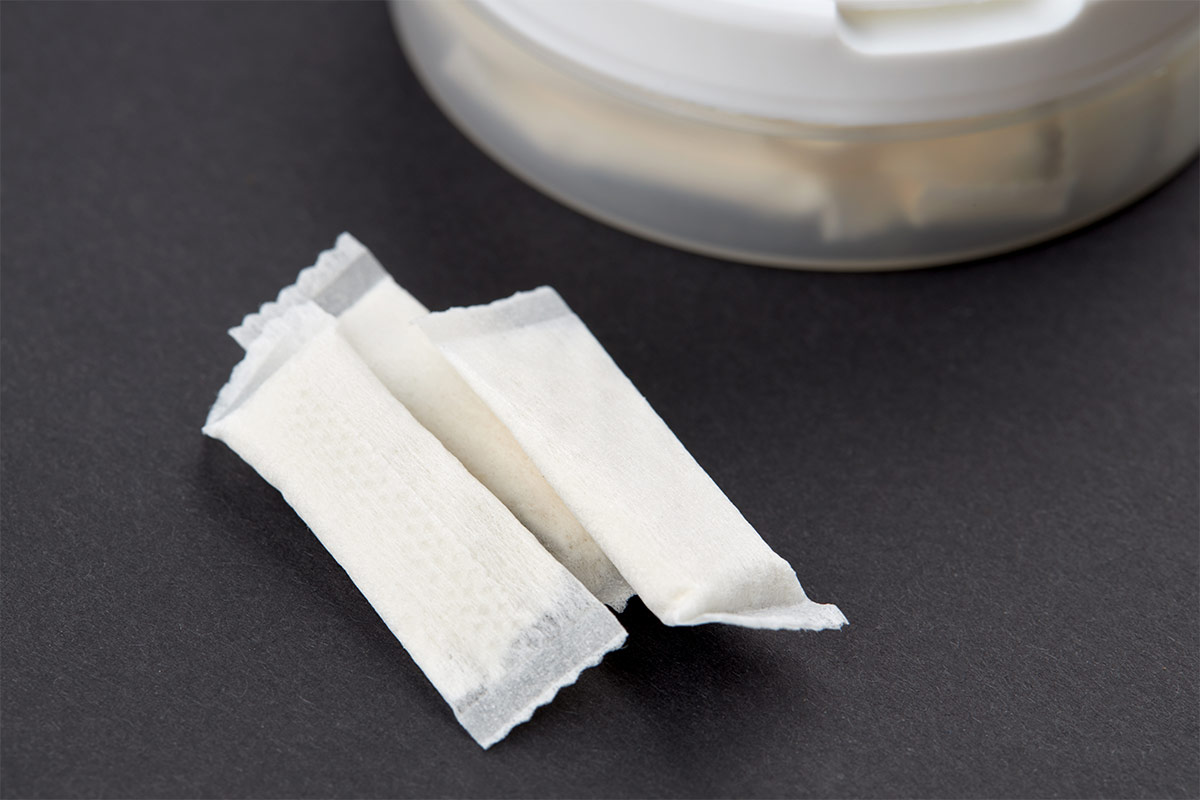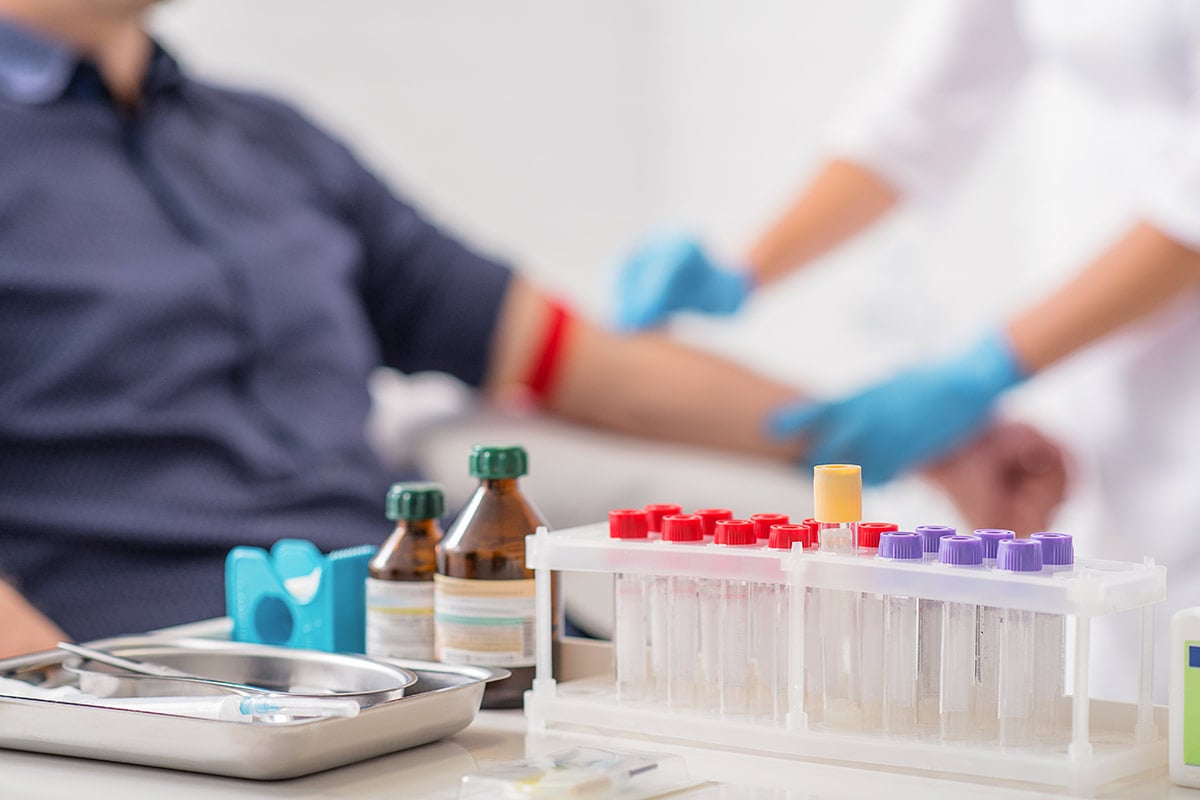What is Nicotine Poisoning?
Nicotine poisoning refers to the toxic effects that can occur when your body absorbs too much nicotine.
Most people associate nicotine with cigarettes and vapes, but you’ll also find it in pouches, gums, lozenges, and patches. Keep in mind that if you’re used to consuming nicotine one way and decide to try a new way, there’s often a period of adjustment. That’s because you can absorb more nicotine from certain products than others, or the rate of absorption might be quicker than what you’re used to.
It’s important to be mindful of your consumption habits and listen to your body when it comes to learning your nicotine limits.
For instance, it takes most people 6 minutes to finish a cigarette—now compare that to a nicotine pouch, which lasts up to 60 minutes. A cigarette won't necessarily contain the same amount of nicotine as a pouch either. So, depending on what your "normal" is, you could be consuming more or less nicotine, faster or slower than usual.
A little nicotine may be fine for regular users, but excessive amounts can cause some unpleasant—even dangerous—side effects. While it’s highly unlikely that you’ll overdose on nicotine, knowing what to look out for and how to handle the situation if things go wrong is important for the sake of your safety and others’.
Key Takeaways
- Nicotine poisoning (or a nicotine overdose) occurs when you consume excessive amounts of nicotine.
- Symptoms include sweating, nausea, vomiting, abdominal pain, and an increased heart rate.
- In extreme cases it can lower your heart rate and cause breathing difficulties, disorientation, or seizures.
- If you suspect someone has nicotine poisoning, call Poison Control on 1-800-222-1222 for advice. Otherwise:
- Keep them hydrated;
- Move them somewhere with fresh air;
- Monitor their symptoms and if they get worse, seek emergency medical attention.
- To avoid nicotine poisoning, make sure you always use nicotine responsibly.
- Stick to recommended amounts (i.e. don’t use more than one nicotine pouch at a time);
- Keep your nicotine products out of reach of children and pets at home;
- Dispose of nicotine products properly;
- Give your body regular breaks from nicotine.
What Causes Nicotine Poisoning?
Nicotine poisoning is more likely to happen if you’re using high strength products, if you don’t have a lot of nicotine experience, or if you’re consuming it in an unfamiliar way (remember that passively absorbing nicotine in a pouch is different to actively puffing on a cigarette).
Don’t be fooled though—nicotine poisoning can also happen to experienced users. It’s simply the result of too much nicotine entering the body, essentially overwhelming your system.
Some of the most common causes of nicotine poisoning are:
- Accidentally eating nicotine products. Children or pets can get into nicotine pouches, gums, or vape juice if they’re not stored properly.
- Misusing Nicotine Replacement Therapies (NRTs). Not following the recommended dosage and using too many patches, gums, or lozenges at the same time.
- Swallowing e-liquid or spilling it on your skin. High strength nicotine vape juice can be dangerous if ingested but, what you might not realize, is that it presents the same risks if absorbed by touch.
- Inhalation exposure. Direct inhalation of high-strength nicotine aerosols from e-cigarettes or extended exposure to “vape clouds” in an enclosed space.
- Nicotine-based pesticides. This is rare, but working outdoors and having too much skin contact with nicotine-based gardening products is not good either.
How Much Nicotine is Too Much?
Just like there’s no set number for how many nicotine pouches it’s ok to consume per day, what’s considered a dangerous amount of nicotine is highly individual.
It depends on several factors, including your body weight and individual tolerance, as well as how you choose to consume the nicotine—both in terms of product (vape vs pouch, etc) and frequency (back-to-back vs spaced out over the course of a day).
Because nicotine affects everyone differently, it's important to be mindful of how much you're consuming. This is especially important if you're trying a new product, using a higher strength, or alternating between different nicotine sources. If you start to feel unwell after using nicotine, take a break.
Symptoms of Nicotine Poisoning
Nicotine poisoning typically unfolds in 2 distinct stages. First comes an initial surge, where the nervous system is overstimulated, causing a rush of activity in the body. This is followed by a second phase where the body tries to compensate by slowing down, which can cause weakness, confusion, and, in extreme cases, breathing difficulties.
Mild nicotine poisoning usually gets better within 1-2 hours, while severe instances can last up to 24 hours. Recognizing the symptoms early and acting quickly is key to preventing serious health complications.
|
Early Symptoms (15-60 minutes): |
More Severe Symptoms (+1 Hour): |
| Feeling nauseous or vomiting | Low blood pressure (hypotension) |
| Extra saliva production | Slow heart rate (bradycardia) |
| Stomach pain | Weakness or confusion |
| Pale or sweaty skin | Breathing difficulties |
| Fast heart rate (tachycardia) | Seizures |
| High blood pressure (hypertension) | Coma |
| Dizziness or headaches | |
| Muscle twitching or tremors | |
| Feeling jittery or anxious |
What to Do if Nicotine Poisoning Happens
Symptoms can easily escalate, so it’s crucial to respond straight away if you suspect someone is experiencing nicotine poisoning.
If you find yourself in this situation, here’s what to do:
- Drink plenty of water. Have the person rinse their mouth thoroughly with water to get rid of any remaining traces of nicotine and make sure to keep them hydrated.
- Get fresh air. Move the person to an open area with good ventilation. They may want to lie down if they’re feeling nauseous or dizzy.
- Monitor their symptoms. If their condition doesn’t improve within 1-2 hours, call Poison Control on 1-800-222-1222 for medical advice. It’s better to be safe than sorry!
- Dial 911 in an emergency. In serious cases, hospital care may be needed. Treatment could include activated charcoal (to limit nicotine absorption), IV fluids for hydration, oxygen therapy to support breathing, or medications to stabilize heart rate and blood pressure.
How to Avoid Nicotine Poisoning
Taking a few simple precautions can go a long way towards keeping everyone safe around nicotine.
The golden rule is to listen to your body. That means sticking within reasonable nicotine limits and not using multiple nicotine products at the same time unless advised by a professional.
Other pointers to keep in mind include:
- Pace your nicotine consumption. Give your body time to process the nicotine after removing a pouch before replacing it with a fresh one.
- Store your nicotine products securely. If you have kids, it’s especially important to keep all your pouches, gums, vape juice, and/or patches out of their reach. Don’t just leave these products lying around. Most e-liquids and high-strength nicotine products come with child-resistant lids or caps, so close them properly after each use too.
- Educate your household. Make sure everyone who needs to know about the risks of nicotine does—especially when it comes to young children or pets who might accidentally ingest it. This includes family members, roommates, and babysitters.
- Dispose of used products safely. Pouches, patches, vapes, and cigarettes can still contain traces of nicotine after you’re done with them. Be sure to throw them away to prevent accidental exposure.
Remember that nicotine is addictive and intended for adult (21+) use only. Being aware of the risks of a nicotine overdose and taking preventative action to make sure this doesn’t happen will make you feel more in control of your nicotine consumption.
More FAQs
- Yes, but it’s rare if you use nicotine products as directed (i.e. 1 nicotine pouch at a time). You should take a break from whatever nicotine product you’re using at the first signs of nausea or light headedness to prevent the onset of more serious side effects.
- It depends on how much nicotine has been consumed but, generally speaking, mild cases of nicotine poisoning should clear up in a few hours. Severe poisoning may require hospital treatment and monitoring for a couple of days, so the sooner you get help, the better.
- Early signs of nicotine poisoning include nausea, dizziness, vomiting, and sweating. If someone starts to feel weak and confused or has trouble breathing, it could be more serious. Don’t hesitate to get medical help if you’re unsure what to do or the symptoms start to worsen.
- Yes—especially with highly concentrated e-liquids like vape juice. If nicotine is spilled on the skin, wash the area right away and monitor how that person is feeling. Getting them to drink plenty of water and moving to an area with good ventilation should help.
- Most cases of nicotine poisoning resolve themselves without treatment in a few (uncomfortable) hours if the nicotine source is removed quickly. If symptoms get worse or last longer though, it’s important to seek medical attention. When in doubt, call Poison Control on 1-800-222-1222 for advice.












Login and Registration Form